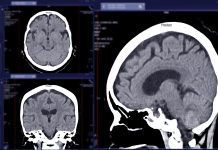Professor Lina Badimon and Elisabetta Zanon from the European Society of Cardiology provide their thoughts on understanding and addressing the impact of COVID-19 on heart disease
COVID-19 and Cardiovascular Diseases (CVD) are closely connected. With the SARS-CoV-2 infection still not under control, understanding and addressing the impact of COVID-19 on the heart is crucial if we want to prevent CVD from becoming the next pandemic.
Publicly available evidence and data collected by a European Society of Cardiology (ESC) survey conducted among its members, (1) show that COVID-19 has had a significant impact on the cardiovascular health of patients for the following reasons:
- Heart disease is among the most common pre-existing health conditions in people who die infected by the virus.
- COVID-19 triggers an inflammatory response that can damage the heart and blood vessels, and increase the risk of blood clotting by 20 – 30% in critically ill COVID-19 patients, leading to heart attacks, strokes and pulmonary embolism.
- During the outbreak, emergency hospital admissions for heart attacks and strokes halved, leaving many people dying at home, or suffering devastating damage to their heart or brain.
- The postponement of heart surgeries and other elective procedures has also led to an increase in preventable death and disability, and to a waiting time backlog which will be difficult to reabsorb.
COVID-19 consequences are wider than the effects of the disease on individual patients. With social distancing measures applied in most countries affected by the disease, the risk factors for cardiovascular mortality have significantly increased in lonely and socially isolated people (by 29% for ischaemic heart disease and by 32% for stroke).(2)
It is clear that COVID-19 will have a cardiovascular legacy. Before the outbreak, the burden of CVD was already greater than that of any other disease and the leading cause of death in Europe and in the world. More than 60 million people live with CVD in the EU, and close to 13 million new cases of CVD are diagnosed every year. CVD accounts for 36% of all deaths and is a major cause of premature death, with around 20% of the mortality before the age of 65. (3) The pandemic will make this already gloomy scenario worse.
While it is now too late to avoid the damage caused to the cardiovascular health of many patients, it is of paramount importance to learn lessons and avoid an ensuing cardiovascular disease pandemic. The COVID- 19 crisis has shown that the availability of accurate and rapidly accessible patient data can inform health policies in an emergency and avoid preventable death and disability. This must be achieved across Europe through the development of harmonised continuous patient registries and the digitisation of our health systems. Such data would also allow effective monitoring of the safety of medical devices, increase the speed and efficiency of randomised controlled trials, and thus, of access to new treatments, and bring industry investment to Europe.
“Fighting cardiovascular disease – a blueprint for EU action”
The repercussions of the pandemic on CVD mortality and morbidity risk being exponential unless bold policy action is taken, thus the need for urgent measures, as outlined in “Fighting cardiovascular disease – a blueprint for EU action”. (4) The document, co-developed by the ESC and the European Heart Network (EHN), calls on policymakers to make CVD a health priority across the European Union. It provides a range of actions to address the increasing burden of the disease and improve patients’ care and treatment, by putting in place a programme spanning across policy, research and regulation.
Supported by Members of the European Parliament (MEP), and co-chairs of the MEP Heart Group, (5) Maria Da Graça Carvalho and Brando Benifei, the CVD Blueprint for EU action was presented by ESC President Barabra Casadei, and EHN President Floris Italianer, at a virtual meeting on 25th June, during which the Euro-pean Health Commissioner Stella Kyriakides emphasised that “Cardiovascular disease is the leading cause of death in EU and the world. The COVID-19 pandemic has highlighted the importance of well-functioning health systems and the need for us to act. The new stand-alone EU4Health programme is a game-changer, putting health as priority for the EU and rising to the challenges posed by the pandemic. It will address the needs of those living with cardiovascular and other non-communicable diseases.”
For more information on the collateral damage of COVID-19 on heart disease click here.
Follow us on Twitter @ESCAdvocacy to hear about our latest activities
References
1. G. Pessoa-Amorim et al. Admission of patients with STEMI since the outbreak of the COVID-19 pandemic. A survey by the European Society of Cardiology, Eur Heart J Qual Care Clin Outcomes 2020, https://academic.oup.com/ehjqcco/advance-article/doi/10.1093/ehjqcco/qcaa046/5848410
2. T J Guzik et al. COVID-19 and the cardiovascular system: implications for risk assessment, diagnosis, and treatment options, Cardiovascular Research, cvaa106, https://academic.oup.com/cardiovascres/advance-article/doi/10.1093/cvr/cvaa106/5826160
3. Institute for Health Metrics and Evaluation. Global Burden of Disease database 2017: http://www.healthdata.org/gbd
4. Fighting cardiovascular disease – a blueprint for EU action, https://www.escardio.org/static-file/Escardio/Advocacy/Documents/2020%20ESC-EHN-blueprint_digital%20edition.pdf
5. MEP Heart Group, https://www.mepheartgroup.eu/








